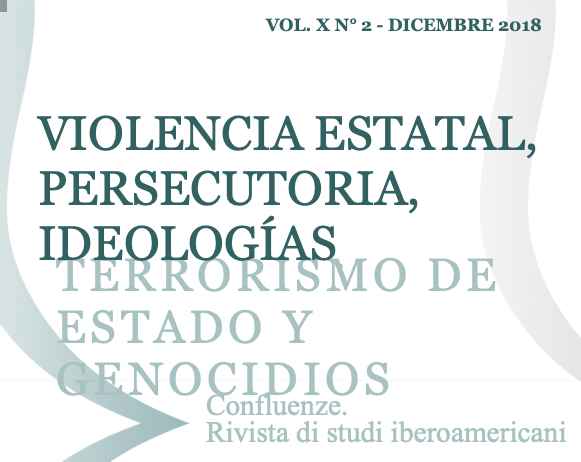Tribunais de papel. O palimpsesto do romance policial e Sempreviva
DOI:
https://doi.org/10.6092/issn.2036-0967/8887Parole chiave:
Brazilian dictatorship, Lei de Anistia, memory, detective novel, justiceAbstract
The aim of this study is to analyze the way in which detective novel as a genre shapes narratives that discuss the function of law and, therefore, the existence of a(n) (im)possible justice, when it is (not) put into existence by the institutions responsible for it. The starting point of this analysis will be Antônio Callado's novel, Sempreviva, written in 1981 during the transitional period towards democracy when the Amnesty Law, institutionalizing an official amnesia, makes it difficult to access reality and to process trauma, identifying, instead of a change, the persistence of the past into the present.
Downloads
Pubblicato
Come citare
Fascicolo
Sezione
Licenza
Copyright (c) 2019 Agnese Soffritti
I diritti d'autore e di pubblicazione di tutti i testi nella rivista appartengono ai rispettivi autori senza restrizioni.
La rivista è rilasciata sotto una licenza Creative Commons Attribuzione 4.0 Internazionale (codice legale completo).
Vedere inoltre la nostra Open Access Policy.
Metadati
Tutti i metadati dei materiali pubblicati sono rilasciati in pubblico dominio e possono essere utilizzati da ognuno per qualsiasi scopo. Questi includono i riferimenti bibliografici.
I metadati – riferimenti bibliografici inclusi – possono essere riutilizzati in qualsiasi formato senza ulteriori autorizzazioni, incluso per scopo di lucro. Chiediamo cortesemente agli utenti di includere un collegamento ai metadati originali.






